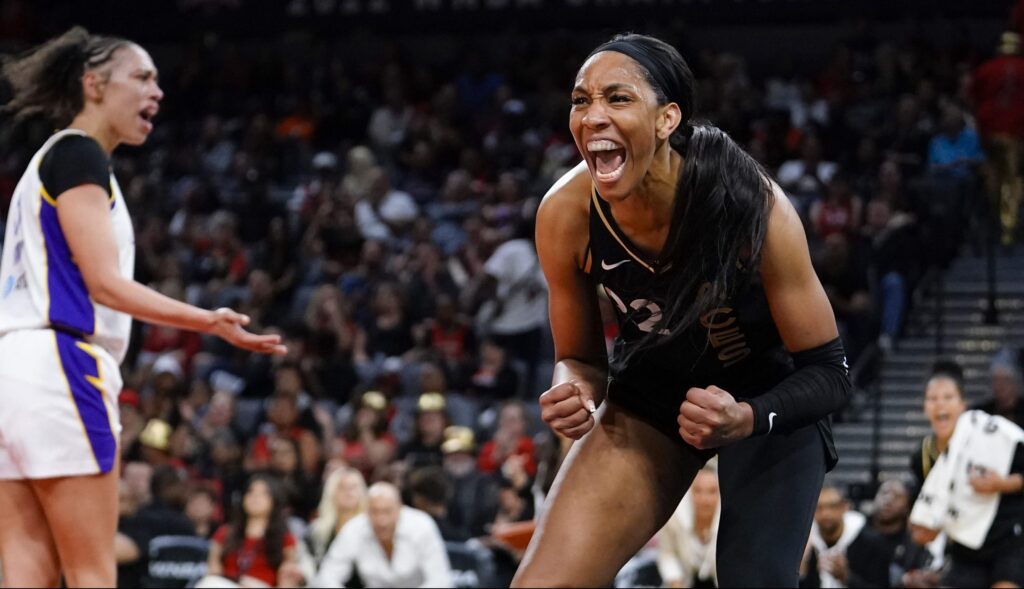There's a growing sense that the WNBA will rake in at least $180 million a year as part of the NBA's new broadcast rights package, and a new report claims the two professional basketball leagues may no longer be a package deal.
Ben Strauss The Washington Post In a story Tuesday detailing where the WNBA fits into the package, it was reported that industry insiders believe this will be the final round of negotiations linking the WNBA and NBA.
Because the NBA owns the WNBA, the women's league's finances are all unclear. Strauss confirmed an earlier report by Puck News' John Orlando that the NBA has no plans to carve out the WNBA as it finalizes new media rights packages with Disney, NBCUniversal and Amazon.
Strauss wrote that there is division among basketball and sports media executives about whether the package would be a positive or negative thing for the NBA.
Still, concrete valuations from broadcasters and other partners give other companies a clearer picture of the league's economics, which is important for team valuations, expansion fees and upcoming media rights negotiations.
Because of that, most of Strauss' sources agreed that the WNBA will move forward with its next package on its own.
Strauss quoted former ESPN marketing executive Laura Gentile as saying, “Women's sports wants accountability and they want growth projections to matter.” Another executive told Strauss that media companies “recognize that the WNBA is becoming more valuable, whether or not they put a specific figure on the WNBA rights.”
Cathy Engelbert recently told Strauss that partnering with the NBA in broadcast rights negotiations is a “huge advantage,” highlighting the WNBA's growing viewership among major networks and key demographics well into 2024. Engelbert said the estimated 330 days of programming offered by the two professional basketball leagues is attractive to networks and streamers.
Many believe the WNBA, which is expected to triple its broadcast revenue with a new deal, could or should have negotiated its own deal this year, but as the WNBA expands to 14 teams over the next few years and potentially gets a new collective bargaining agreement next year, it could expand its regular season and playoff schedule and make its own media rights more valuable over time.
As viewership grows and college stars bring more celebrity status to the league, the WNBA will likely have even more leverage in negotiations in the future.
[Washington Post]

